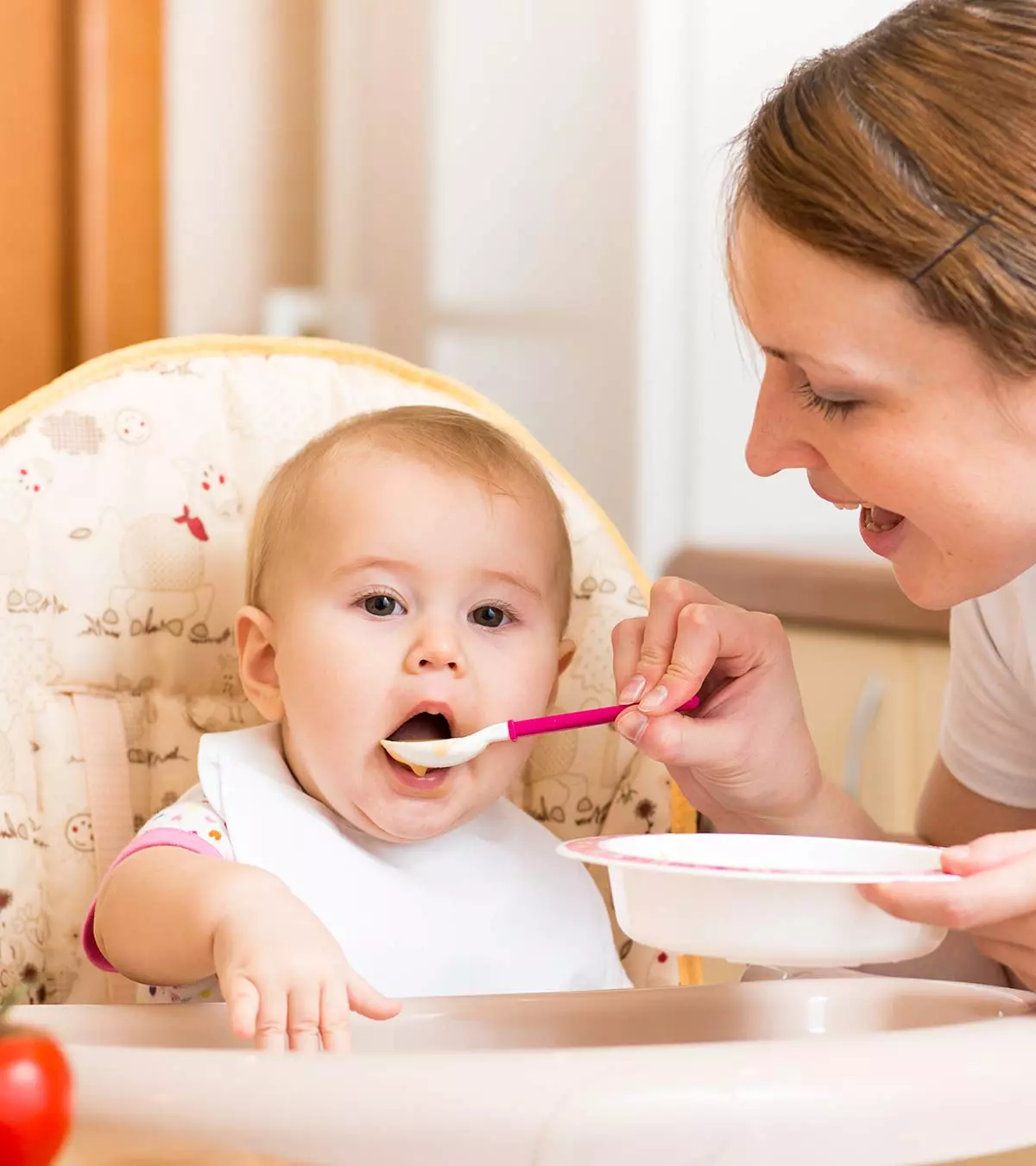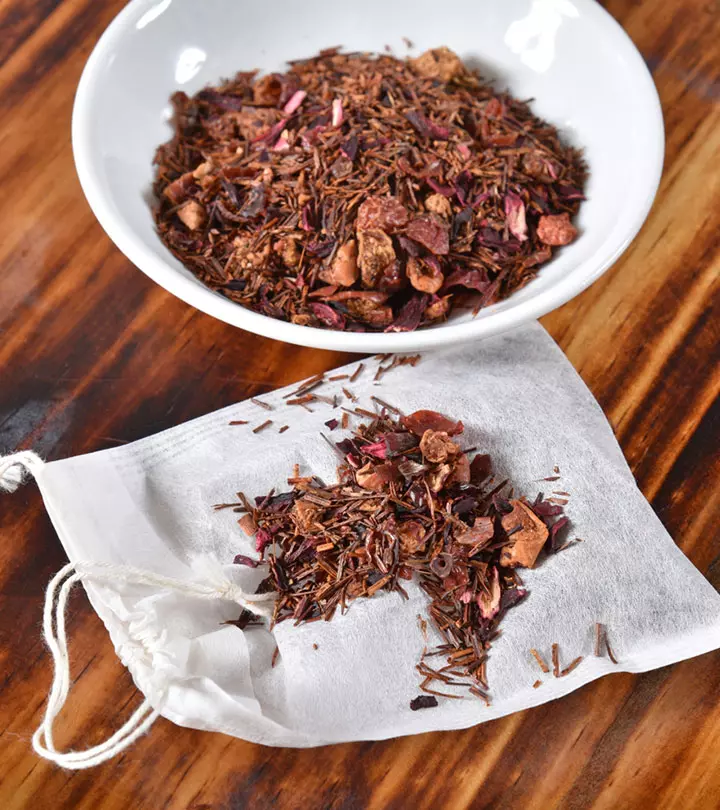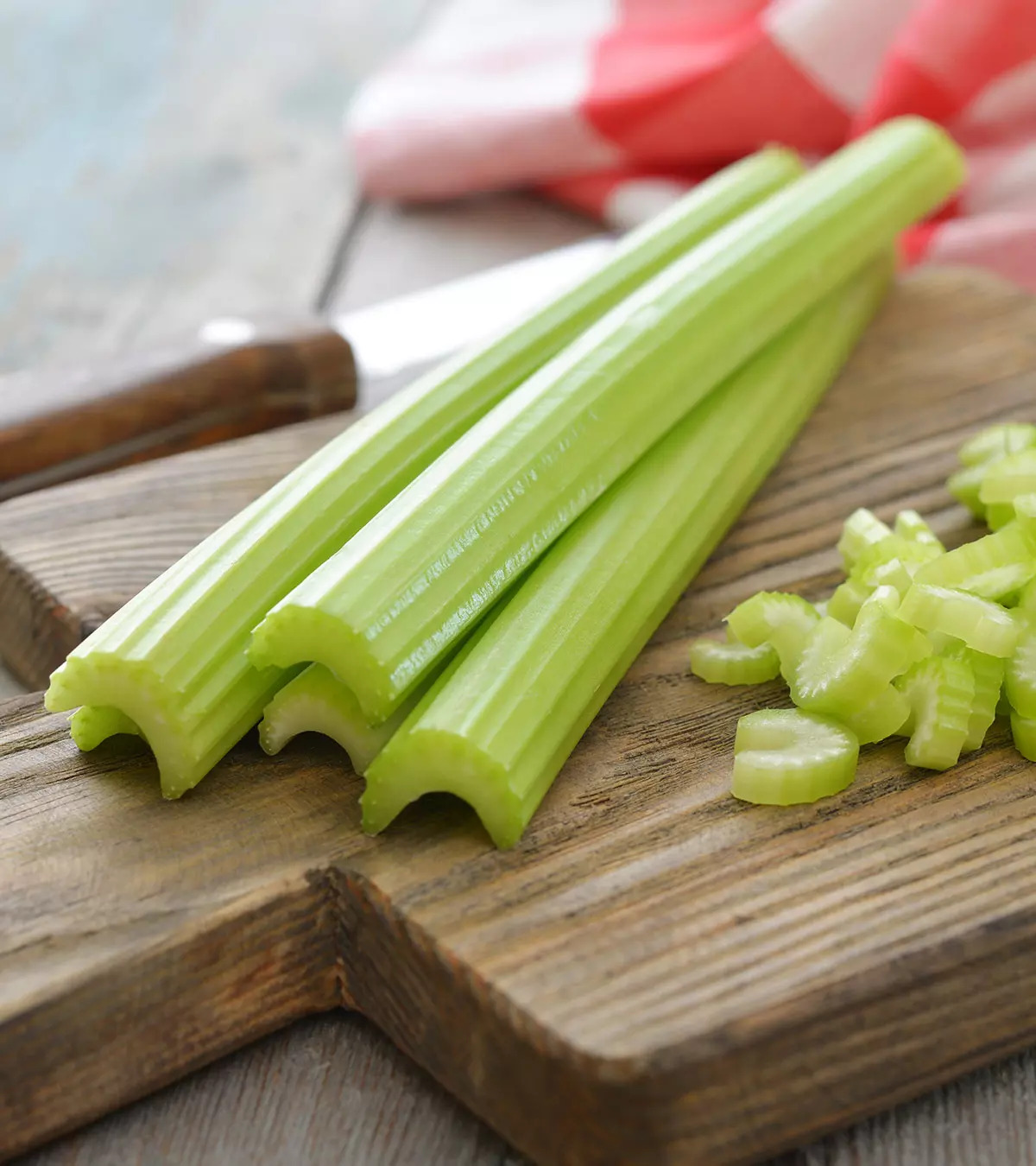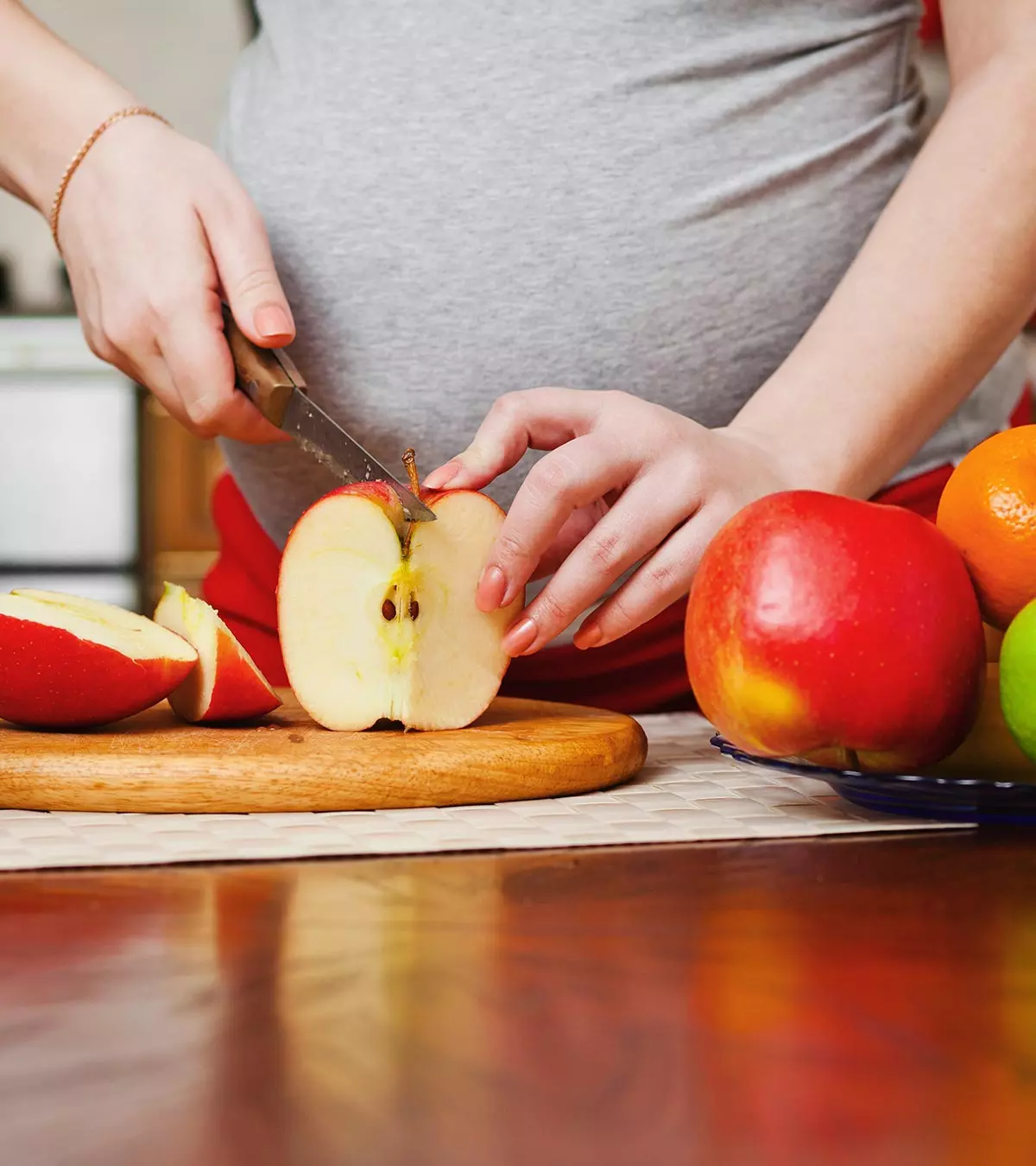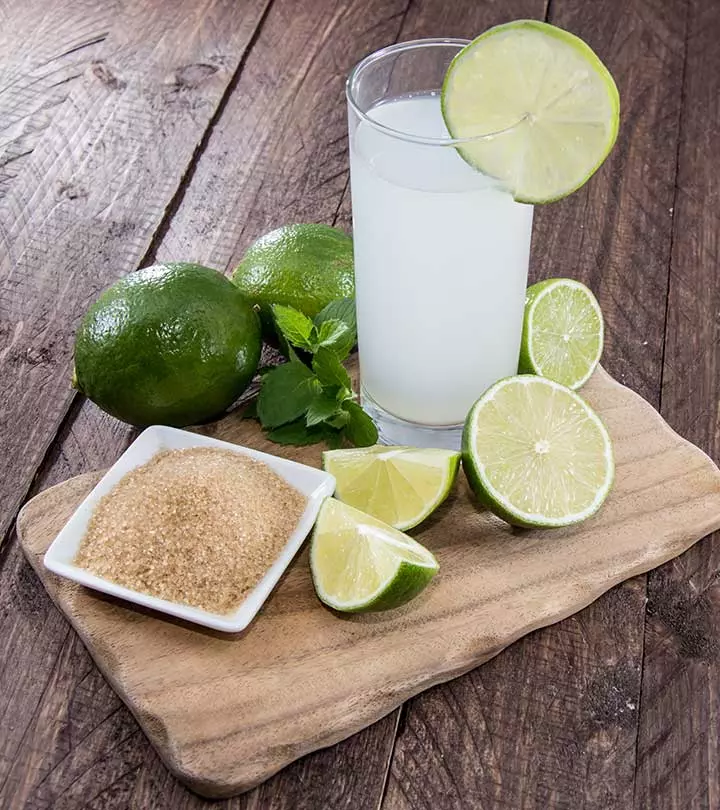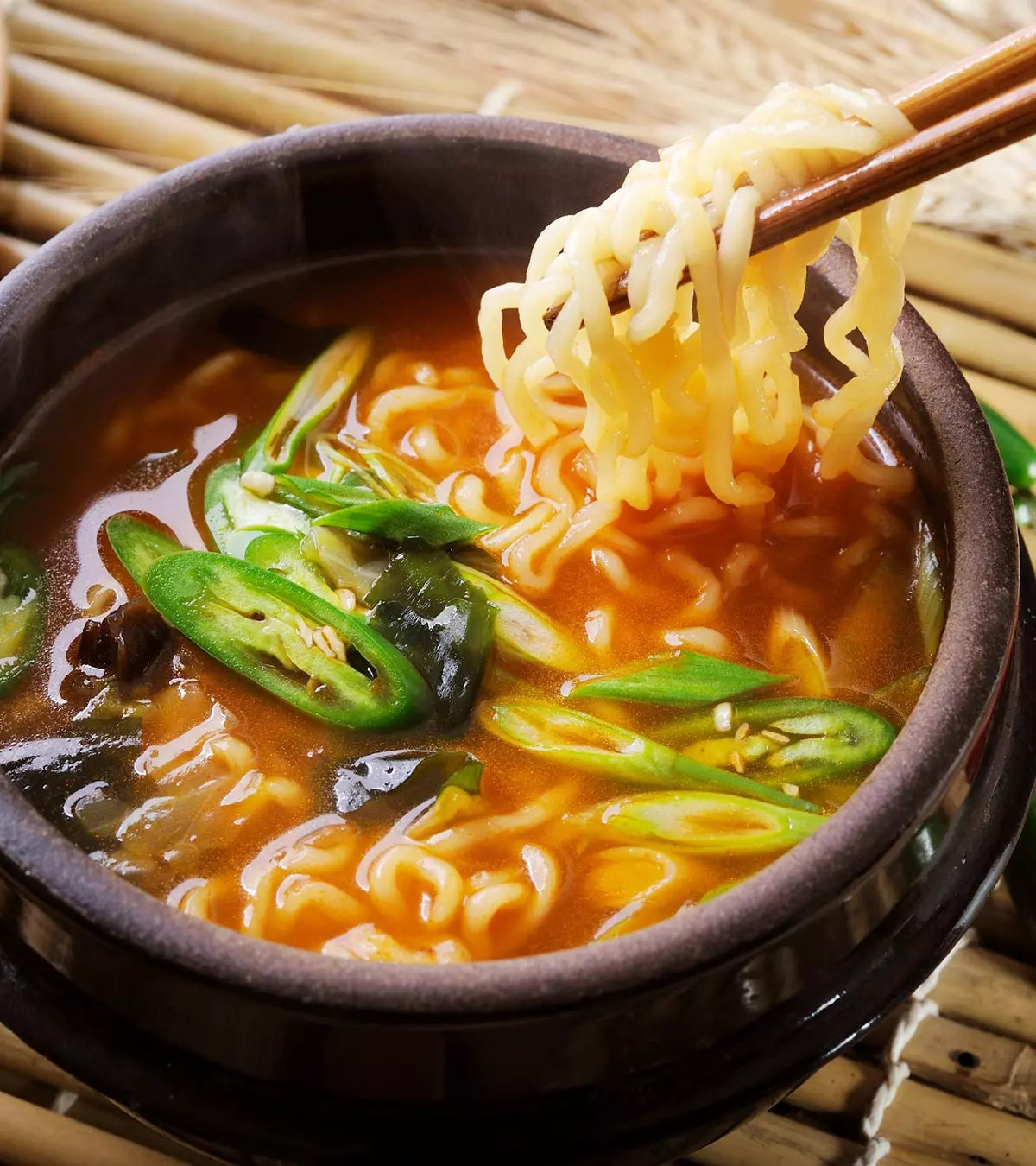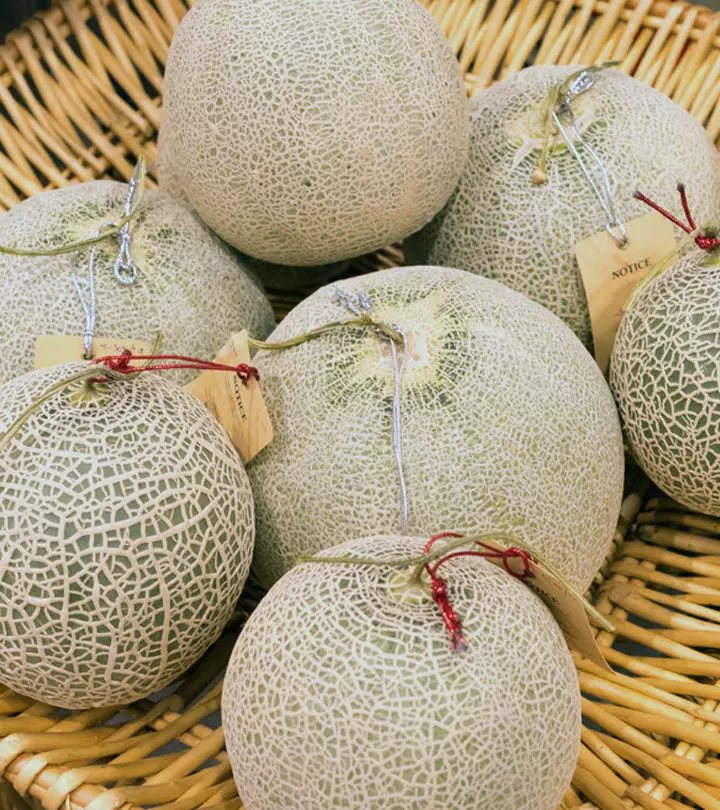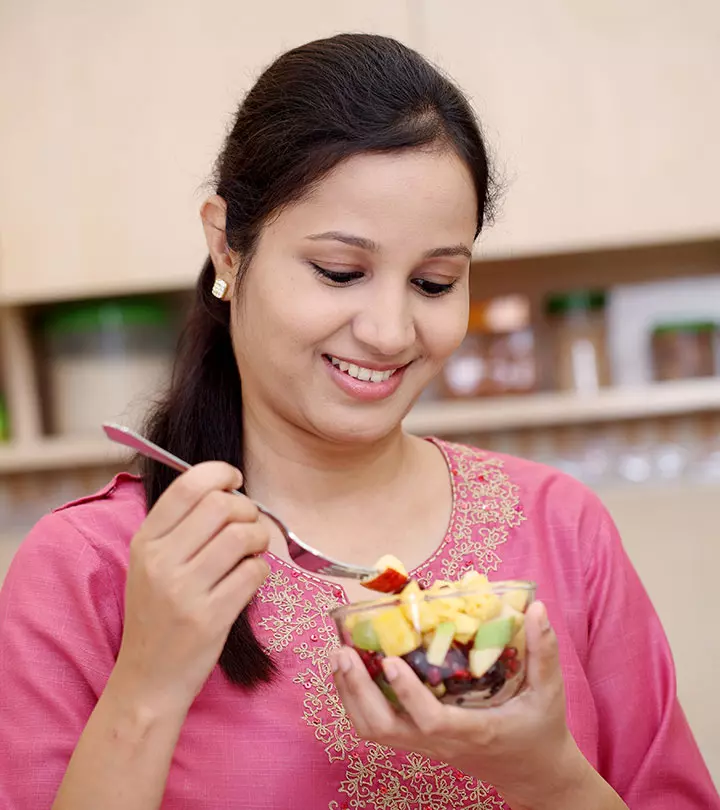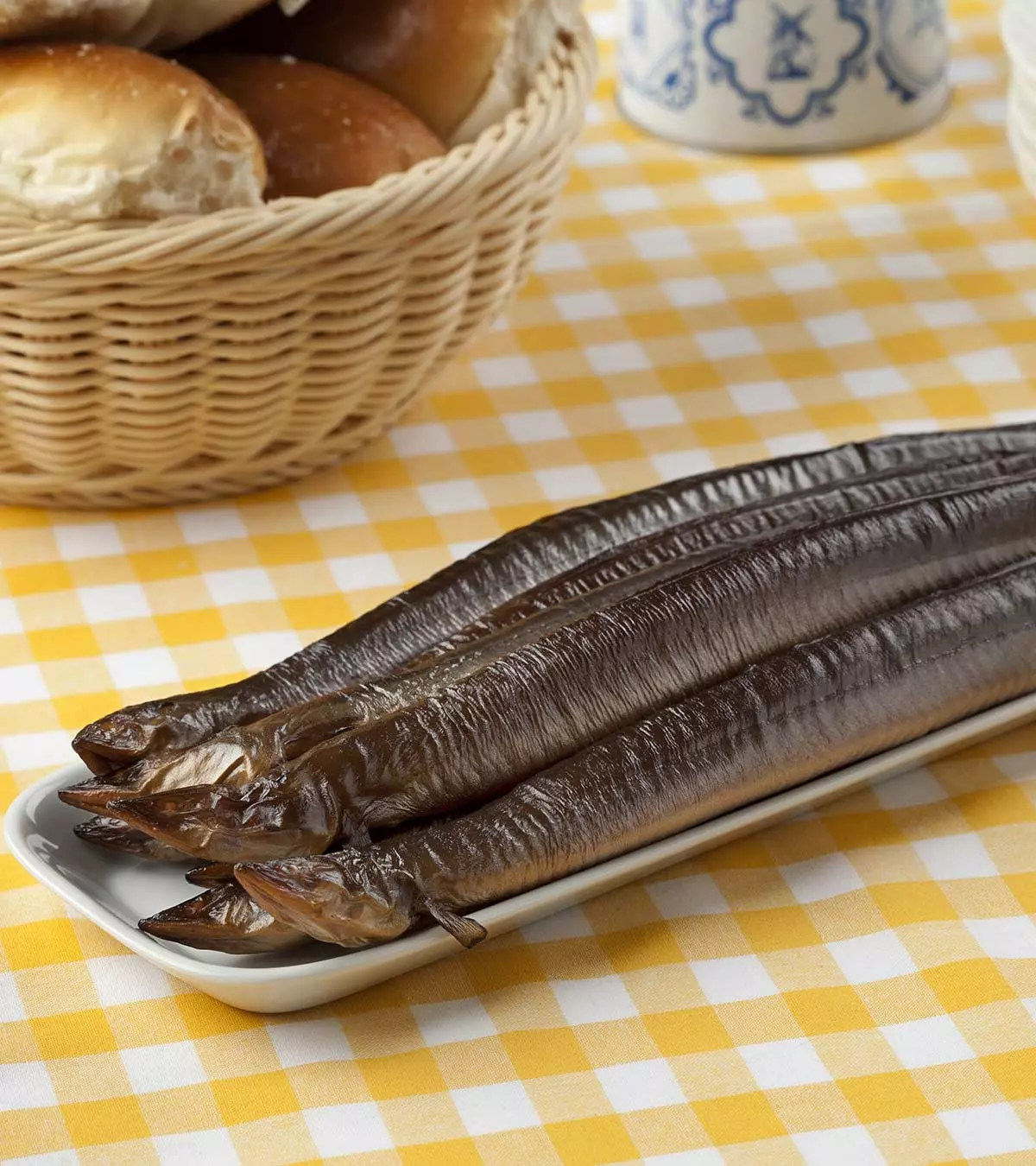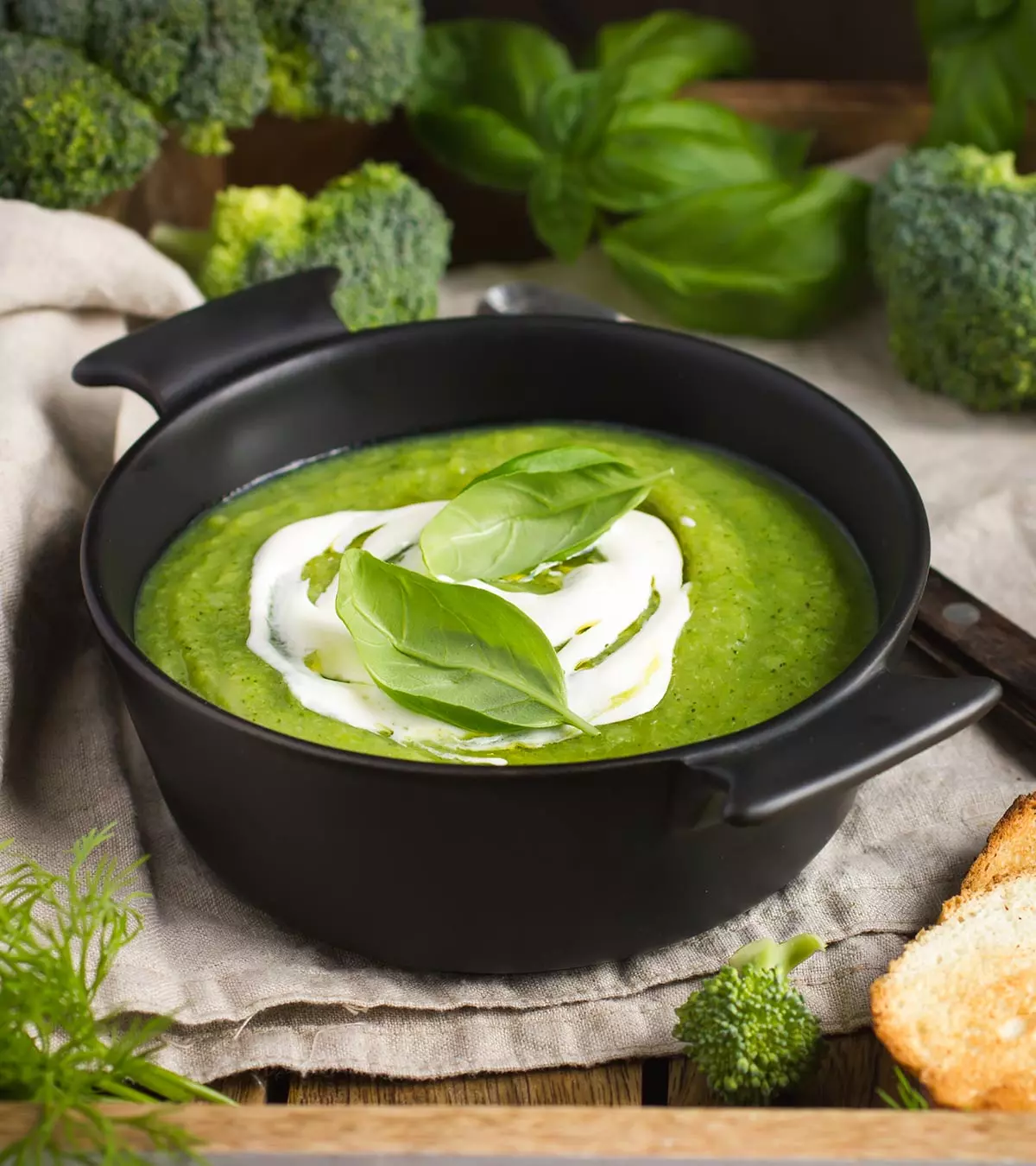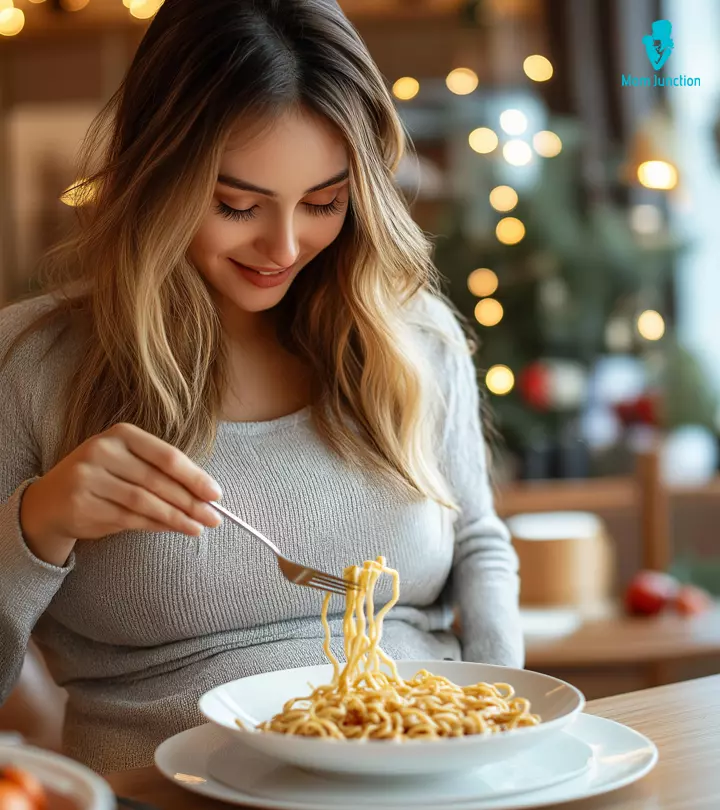
Image: Midjourney/ MomJunction Design Team
Many women crave instant noodles during pregnancy but are concerned about how safe it is for their baby’s health. Instant noodles are precooked noodles that are packed and sold in cups, bowls, or packets along with seasoning oil and taste enhancers. They are generally not considered a good food option for pregnant women because they are high in carbohydrates and sodium, do not provide nourishment, have little nutritional value, and contain preservatives. These ingredients may interfere with baby development. However, if you want to eat instant noodles, you may explore ways to cook them more healthily. This post provides more information about the nutritional value of instant noodles, their harmful ingredients, and some tips to make them healthier.

Key Pointers
- Instant noodles are not a recommended food option during pregnancy.
- Instant noodles are high in carbohydrates and sodium but have little nutritional value.
- A high-salt diet during pregnancy can increase the risk of hypertension and renal disease in the baby.
- It is advisable to limit the consumption of instant noodles during pregnancy and avoid adding extra salt to instant noodles.
- Adding vegetables and hard-boiled eggs to instant noodles can increase its nutritional value.
Is It Safe To Eat Instant Noodles During Pregnancy?
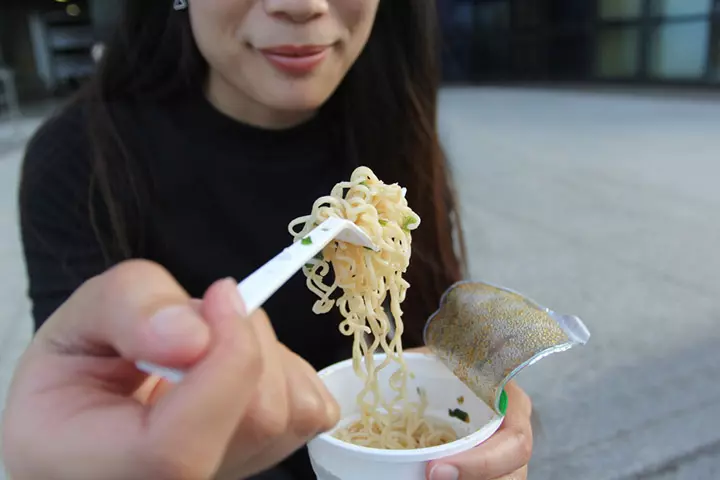
Wheat is one of the common foods pregnant women crave for (1). Therefore, instant noodles made of wheat flour are among the common pregnancy cravings.
A blogger named Linh shares some foods that she craved during her first trimester of pregnancy. She says, “Asian noodle soup – whenever my mom would call to see what I wanted for dinner (on Mondays we go over for dinner), I would say “noodle soup, please.” When my mom was pregnant with my brother, she had the same craving too…after dinner (rice) she would have to eat a bowl of instant noodles.” Sharing some other noodles that appealed to her, she states, “Other types of noodles – such as chow fun/chow mein, Pad See Ew (Thai noodles) and pasta (i).”
However, according to medical experts, it is best to stay away from eating instant noodles during pregnancy. However, if you really must indulge, it is suggested to
- Make sure no extra salt is added (2).
- Include vegetables to make it nutritious.
- It’s best to keep the consumption to the very minimum.
 Point to consider
Point to considerNutritional Value Of Instant Noodles
Instant noodles are generally made of wheat flour, starch, palm oil, and salt. Their nutritional composition varies depending on the brand and additional ingredients. Sometimes wheat flour is replaced with buckwheat too.
| Instant Noodles (Raw) | |
| Nutritional value per 100 g (3.5 oz) | |
| Energy | 1,895 kJ (453 kcal) |
| Carbohydrates | 65 g |
| Dietary fiber | 2.4 g |
| Fat | 17 g |
| Saturated | 7.6 g |
| Monounsaturated | 6.5 g |
| Protein | 9 g |
| Vitamins | |
| Thiamine (B1) | (61%) 0.7 mg |
| Riboflavin (B2) | (33%) 0.4 mg |
| Niacin (B3) | (36%) 5.4 mg |
| Folate (B9) | (37%) 147 μg |
| Trace metals | |
| Iron | (33%) 4.3 mg |
| Potassium | (3%) 120 mg |
| Sodium | (77%) 1160 mg |
One package is 80 g | |
| Units μg = micrograms • mg = milligrams IU = International units | |
| Percentages are roughly approximated using US recommendations for adults. |
The Dark Side of Instant Noodles: What Makes Them Harmful?
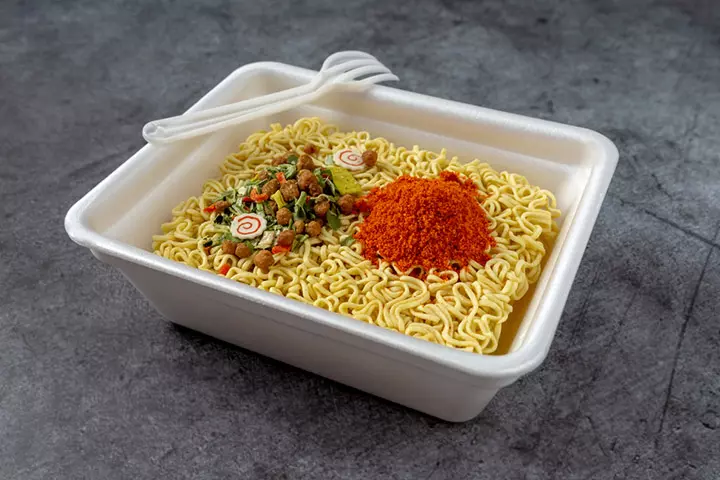
Pregnant women are usually advised to moderate the consumption of noodles for the following reasons (3) (4):
- Noodles are grouped under junk food as they contain high levels of carbohydrates and fat. Data collected from 48 instant noodle samples, presented by the Centre for Food Safety (CFS) and the Consumer Council (CC), Hong Kong suggests that each 100g of instant noodles may contain about 12.2g of saturated fat and about 30g of total fat. Thus, it may increase the risk of obesity, overweight, and heart disease.
- They are very low on vitamins, proteins, fiber, and minerals.
- One of the biggest concerns with noodles is the high content of sodium in it. The current U.S. Recommended Dietary Allowance of sodium for adults is 1,500mg/day (5). A typical pack of instant noodles contains about 834mg to 5800mg of sodium (per 100g of edible portions). Pregnancy already involves the risk of high blood pressure. Therefore, the extra amount of sodium intake can affect the baby negatively (6).
 Point to consider
Point to consider- Instant noodles also contain additives like Tertiary butylhydroquinone (TBHQ) which can be harmful for pregnant women (7).
Johna Burdeos, a registered dietitian from Greater Houston, says, “TBHQ is short tertiary butylhydroquinone. It is an additive used to preserve the shelf life of processed foods, including noodles. Like many food additives, TBHQ has not been extensively studied in humans. However, there is controversy surrounding its use. There are studies showing that TBHQ is linked to the incidence of tumors in rats, vision problems in humans, and effects on human behavior.” - Additionally, the seasoning of many instant noodles brands contains Monosodium glutamate (MSG), a flavor enhancer (7), which may cause reactions like increased nausea, swelling, and chest tightness (8). Some animal studies also reported adverse effects of MSG on fetal growth (9); however, these effects are unclear for humans.
Tips To Make Instant Noodles Healthier
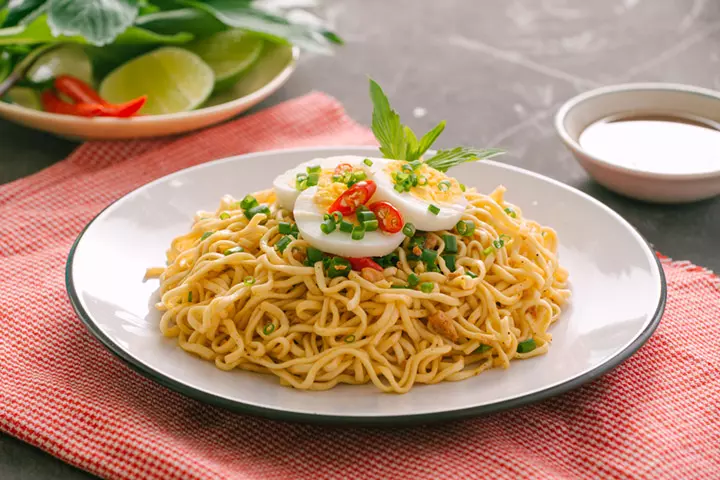
Instant noodles lack vitamins, protein, minerals, and dietary fibers. Therefore, some healthy additions and nutritional tips can help to make it more healthy. Some of these tips are:
- Make sure that you include a lot of fresh vegetables like peas, capsicums, tomatoes, potatoes etc. These vegetables also help in enriching the flavor of the noodles while upping the nutrition quotient.
- Try adding lean protein sources, cooked chicken, hard boiled eggs, and tofu.
- Adding spices like ginger and turmeric can also enhance the flavor without needing to add extra salt to your instant noodles.
- If consuming soup noodles, try to consume less soup.
- When buying instant noodles, ensure to read the nutritional labels and choose the ones with lower sodium, total fat, and saturated fat content.
- Avoid opting for deep-fried noodles, instead choose plain, healthy, or homemade noodles.
- Nestle Maggi tops the lists for the most selling instant noodle brand in South Asian countries. Their atta noodles and multigrain noodles are relatively healthier.
- Also, Foodles by Horlicks is rated the healthiest of all instant noodles available in India.
- Knorr Soupy Noodles also contain a decent amount of vegetables.
- Another thing that needs to be taken into consideration is the oil that is used in the preparation of noodles. Instant noodles require not more than one tablespoon of oil for garnishing (most people prefer this than just boiling it in water.) Make sure that the oil is fresh and clean. Ensure it hasn’t turned rancid.
- Always keep in mind that noodles containing added vegetables are loaded with extra preservatives.
 Quick tip
Quick tipFrequently Asked Questions
1. Are ramen noodles safe to eat during pregnancy?
Yes, occasional intake of ramen noodles while pregnant is safe. However, ensure you do not consume ramen noodles daily. They are usually made of refined flour and are loaded with chemicals and preservatives that might adversely affect you and your growing baby. Burdeos recommends, “If you are consuming large quantities of foods containing TBHQ, it may be a good idea to reduce that, whether or not you are pregnant. Consider looking for noodles that do not contain TBHQ.”
2. Can I eat Hakka noodles during pregnancy?
Yes, you can eat Hakka noodles during pregnancy occasionally. The monosodium glutamate or MSG in Hakka noodles will not harm you or your baby unless you eat the noodles in large amounts.
3. Why do I crave noodles during pregnancy?
According to experts, pregnant women experience cravings for several reasons, such as hormonal changes, a heightened sense of smell and taste, and nutritional deficiencies (11). These changes during pregnancy can trigger cravings for different foods, including noodles.
4. Can consuming too much noodles during pregnancy lead to gestational diabetes?
Yes, consuming excessive amounts of noodles during pregnancy can increase the risk of developing gestational diabetes. Pregnant women should focus on consuming foods with lower glycemic indexes, such as potatoes, and avoid fried noodles that are high in carbohydrates and unhealthy fats (12).
5. Can I eat noodles made with egg during pregnancy?
Consuming egg noodles in moderation can be beneficial as eggs contain high levels of folate (13).
6. What are some healthier alternatives to instant noodles during pregnancy?
If you’re craving noodles during pregnancy, you may look for healthier and nutritional alternatives. This may include whole wheat or brown rice noodles, homemade noodles, noodles made with vegetable scapes of zucchini, carrots, beetroot, and cucumber, buckwheat noodles (soba noodles), or Spaghetti squash. You can also opt for quick oat dishes, rice paper rolls, quinoa, and millet recipes during pregnancy.
Instant noodles have gained popularity and are now a frequent meal in many households. but when it comes to pregnancy cravings, it’s important to consider the concept of healthy eating. Pregnancy cravings may make a woman crave instant noodles, but one may wonder if it is safe to eat them. While it is advisable for pregnant women to avoid eating foods like ready-made noodles and pasta during pregnancy, you can seek your doctor’s permission to indulge in small quantities and satiate your craving. In addition, you can make these healthier by adding freshly chopped vegetables and limiting the oil or salt added to them.
Infographic: Potential Health Risks Of Instant Noodles In Pregnancy
Pregnant women may occasionally want to satisfy their food cravings by having snacks such as instant noodles. However, it is essential to be aware of the harmful effects of the food you relish on yourself and your baby. Here is an infographic highlighting the possible risks of having instant noodles when pregnant. Check out!
Some thing wrong with infographic shortcode. please verify shortcode syntaxIllustration: Is It Safe To Eat Instant Noodles During Pregnancy?
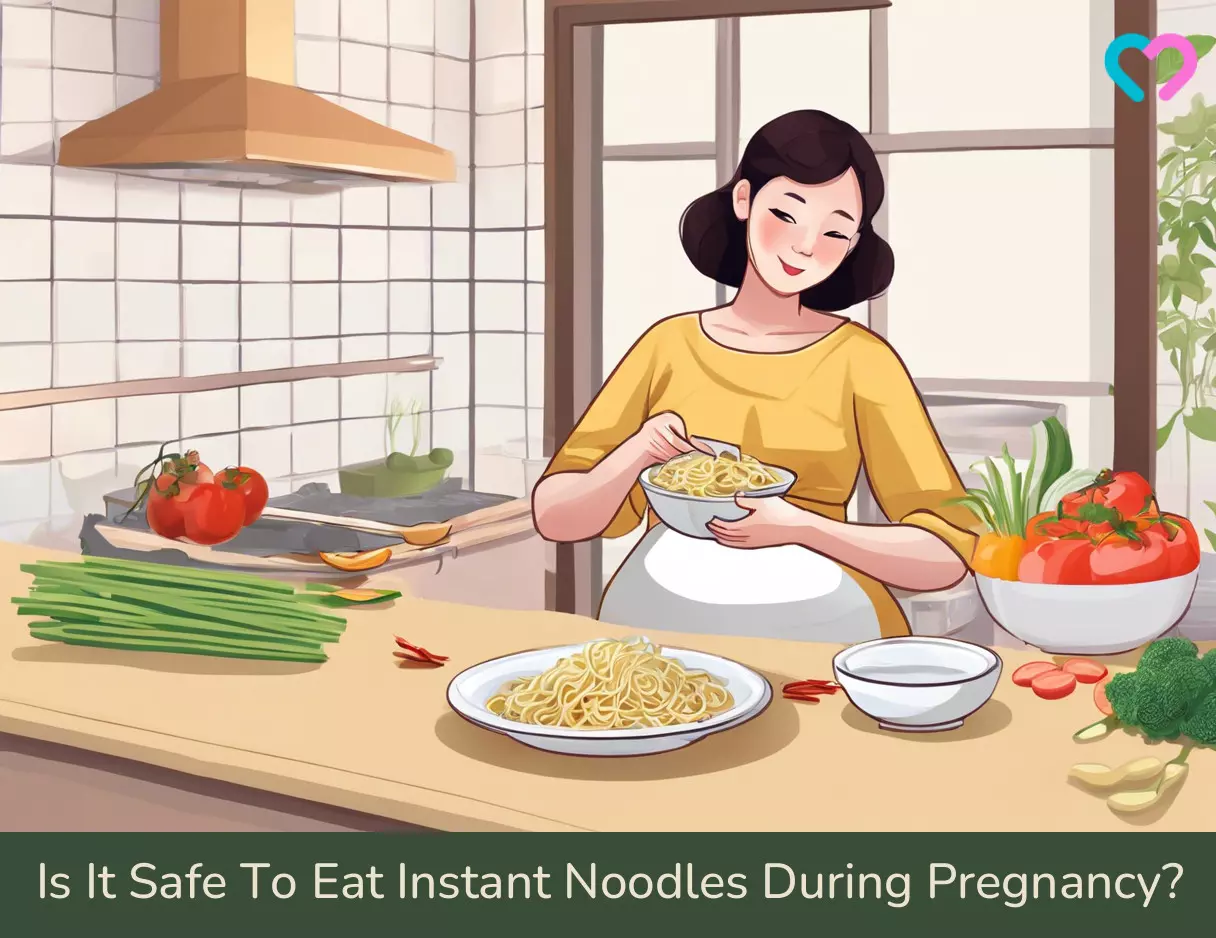
Image: Stable Diffusion/MomJunction Design Team
Personal Experiences: Source
MomJunction articles include first-hand experiences to provide you with better insights through real-life narratives. Here are the sources of personal accounts referenced in this article.
i. The First Trimester;
https://linhandjon.wordpress.com/2011/02/10/the-first-trimester-2/
References
- Six popular types of food on pregnancy cravings lists.
https://www.themotherbabycenter.org/blog/2025/12/pregnancy-cravings-list/ - Healthy eating in pregnancy.
https://www.nhs.uk/start-for-life/pregnancy/healthy-eating-in-pregnancy/ - Juyeon Park et al.; (2011); A comparison of food and nutrient intake between instant noodle consumers and non-instant noodle consumers in Korean adults.
https://pmc.ncbi.nlm.nih.gov/articles/PMC3221830/ - Publications and Other Documents Including Press Release on Nutrition Labelling.
https://www.cfs.gov.hk/english/programme/programme_nifl/programme_nifl_Joint_Feature_Articles_01_instant_noodles.html - Dietary reference intakes for sodium and potassium (2019).
https://nap.nationalacademies.org/read/25353/chapter/13 - Mariel Arvizu et al.; (2019); Sodium Intake During Pregnancy, but Not Other Diet Recommendations Aimed at Preventing Cardiovascular Disease, Is Positively Related to Risk of Hypertensive Disorders of Pregnancy
https://www.ncbi.nlm.nih.gov/pmc/articles/PMC6946899/ - Madiha Sikander et al.; (2017); Instant Noodles: Are they Really Good for Health? A Review.
https://www.researchgate.net/publication/318217339_Instant_Noodles_Are_they_Really_Good_for_Health_A_Review - What is MSG? Is it bad for you?
https://www.mayoclinic.org/healthy-lifestyle/nutrition-and-healthy-eating/expert-answers/monosodium-glutamate/faq-20058196 - Hadeer M. Shosha et al.; (2025); Effect of monosodium glutamate on fetal development and progesterone level in pregnant Wistar Albino rats.
https://link.springer.com/article/10.1007/s11356-023-25661-x - Alyssa J. Provagna et al.; (2016); Effects of High-Salt Diet during Pregnancy on Fetal Nephrogenesis and Hypertension Later in Life : Aberrant Renin-Angiotensin System Programming.
https://www.semanticscholar.org/paper/Effects-of-High-Salt-Diet-during-Pregnancy-on-Fetal-Provagna-Beierwaltes/0f53fdbf6c3a81f1f7e374aaaf7108b731c5ff54 - Why Pregnancy Can Make You Have Weird Cravings.
https://intermountainhealthcare.org/blogs/why-pregnancy-can-make-you-have-weird-cravings - Study on Effects of Dietary Structure on the Incidence of Gestational Diabetes Mellitus and Macrosomia
https://www.omicsonline.org/open-access/study–on–effects–of–dietary–structure–on–the–incidence–of–gestational-diabetes-mellitus-and-macrosomia-117642.html?view=mobile - Folate Fact Sheet for Health Professionals.
https://ods.od.nih.gov/factsheets/Folate-HealthProfessional/
Community Experiences
Join the conversation and become a part of our nurturing community! Share your stories, experiences, and insights to connect with fellow parents.
Read full bio of Reda Elmardi
- Johna is a registered dietitian with 20 years of experience in clinical nutrition and outpatient nutrition counseling. She is also a freelance writer in the health and wellness space. Johna did her education at San Diego State University.
 Johna is a registered dietitian with 20 years of experience in clinical nutrition and outpatient nutrition counseling. She is also a freelance writer in the health and wellness space. Johna did her education at San Diego State University.
Johna is a registered dietitian with 20 years of experience in clinical nutrition and outpatient nutrition counseling. She is also a freelance writer in the health and wellness space. Johna did her education at San Diego State University.
Read full bio of Anshuman Mohapatra
Read full bio of Swati Patwal
Read full bio of Dr. Joyani Das








